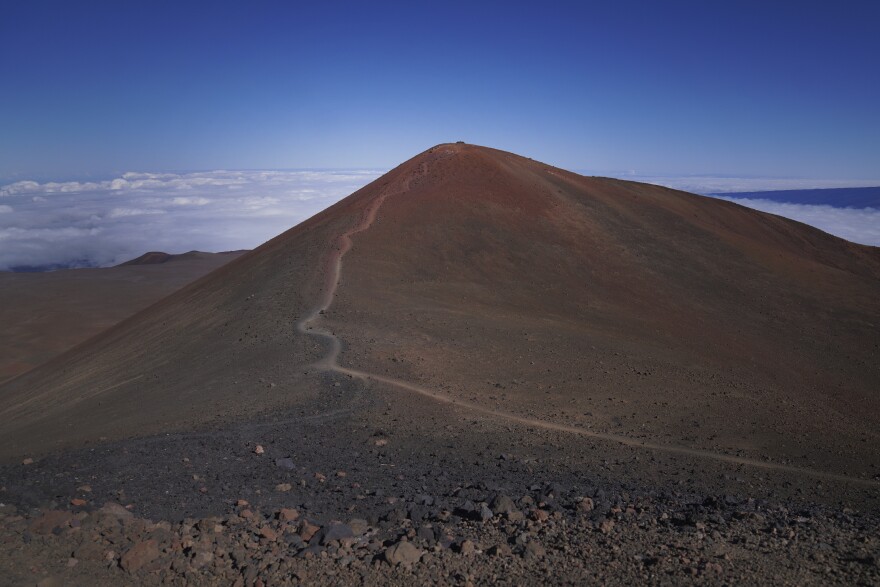The tallest mountain in Hawai‘i is officially on the National Register of Historic Places, according to the environmental group KAHEA.
Maunakea, which means "white mountain" in ʻŌlelo Hawaiʻi, is considered sacred by many Native Hawaiians and is viewed as the piko (umbilical cord) connecting the land to the heavens.
It’s also been the hub of major protests in recent years, primarily against the construction of the Thirty Meter Telescope on the mountain.
Making the list now federally recognizes Maunakea as a traditional cultural property. That means federal agencies and private entities seeking funding or permits are required to address the potential impacts of their proposals on the mountain.
Making the list has been a two-year effort led by environmentalist groups Mauna Kea Anaina Hou and KAHEA.
Bianca Isaki, KAHEA's Mauna Kea legal director, said that it's been a long process.
“It's a lot of research,” she said, adding that the groups have been speaking with stakeholders and community members during the process.
Maunakea was listed on the State Register of Historic Places in 2023, but there's been a push to have the mountain federally recognized.
The National Park Service's National Register of Historic Places list was published in 1992. The federal agency recognizes more than 90,000 properties for their significance in American history, including architecture, art, archeology, engineering and culture.
“I am so grateful that Mauna Kea and its sacredness will now formally be recognized as a TCP (traditional cultural property),” Kealoha Pisciotta, president of Mauna Kea Anaina Hou, said in a news release.





